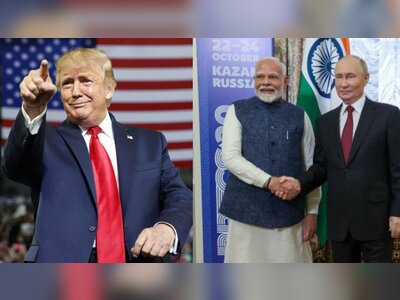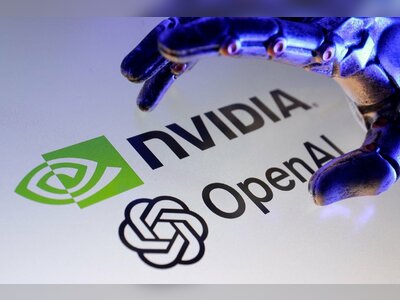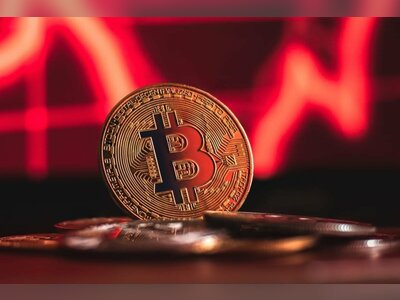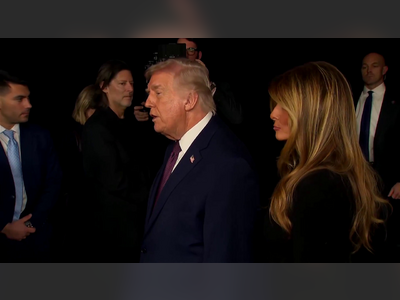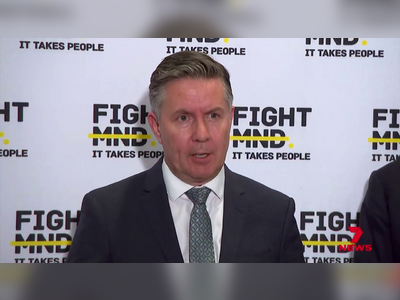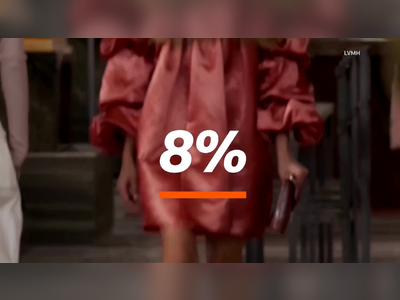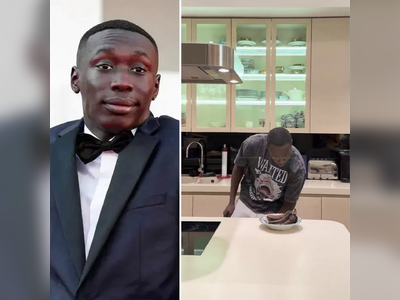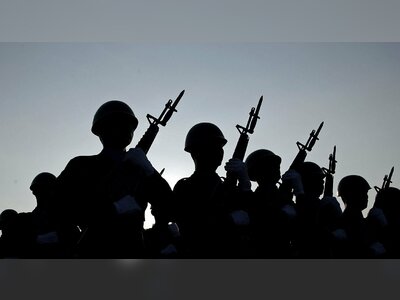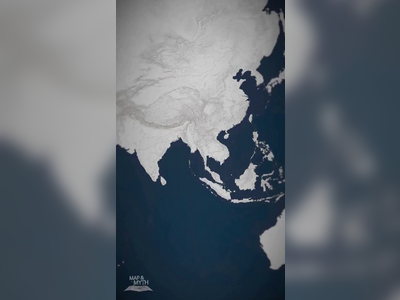Seoul's Intense Drama: Arrest of Ousted South Korean President Following Standoff
The military rule declaration by former President Yoon Suk-yeol, along with his subsequent impeachment and arrest, has sparked political unrest in South Korea.
In a stunning development, South Korean authorities have apprehended former President Yoon Suk-yeol following a tense standoff at his residence in Seoul.
Yoon's contentious imposition of martial law and subsequent impeachment by parliament led to a dramatic police operation involving over 1,000 officers.
The arrest has sparked widespread debate about political accountability, constitutional law, and the vulnerability of South Korea’s democracy.
Build-Up: Martial Law and Impeachment
Yoon Suk-yeol, once a promising figure in South Korean politics, startled the nation in December by declaring martial law.
Claiming it was essential for safeguarding national security, Yoon accused opposition parties of subverting democracy.
However, the declaration was immediately denounced by lawmakers and civil society groups, who saw it as authoritarian overreach.
Within hours, parliament convened an emergency session, unanimously voting to annul the martial law order.
Under intense political pressure, Yoon withdrew the declaration but refused to resign.
By early January, parliament had formally impeached him, marking the start of a prolonged standoff.
The Arrest: A Dramatic Endeavor
After weeks of unsuccessful attempts to execute an arrest warrant, law enforcement officials increased their efforts on January 14. Police and anti-corruption investigators surrounded Yoon’s home, facing resistance from his presidential security team and loyalists, including 30 lawmakers from the ruling party who physically blocked access to the property.
To breach the barriers, police used ladders to climb over buses and barricades strategically positioned around the residence.
Inside, Yoon eventually agreed to cooperate, saying, 'I will submit to questioning to prevent bloodshed,' while insisting the arrest was unlawful.
His motorcade was soon seen heading to the investigation headquarters.
Public Reaction: Divided Opinions
The arrest has further polarized South Korea’s already divided political scene.
Supporters of Yoon gathered outside his residence, chanting slogans and denouncing the impeachment as a politically motivated action.
Clashes erupted between Yoon’s supporters and opponents, prompting police to intervene and disperse the crowds.
Opposition leaders, meanwhile, welcomed the arrest as a step towards restoring constitutional order.
Park Chan-dae, head of the Democratic Party, stated, 'This is the first step towards reestablishing democracy and the rule of law in South Korea.'
Interim Leadership and Political Stability
Following Yoon’s impeachment, interim President Choi Sang-mok has been working to stabilize the nation amid rising tensions.
In a televised address, Choi called for restraint and cautioned against physical conflicts between state agencies and political groups.
'We must prioritize national unity and prevent further escalation,' he stressed.
Choi’s leadership has been cautiously supported by opposition parties, but navigating a deeply divided political landscape remains challenging.
Observers note that the interim government’s handling of the fallout from Yoon’s arrest will be crucial to ensuring South Korea’s democratic stability.
Historical Context and Broader Implications
Yoon’s martial law declaration represents a rare and contentious episode in South Korea’s modern history.
The nation, which transitioned to democracy in the late 20th century after decades of authoritarian rule, has faced periodic crises testing the resilience of its institutions.
Analysts suggest that Yoon’s actions reflect deeper political and social divisions, exacerbated by economic challenges and changing geopolitical dynamics in the region.
South Korea’s commitment to democratic norms will likely be scrutinized as the legal proceedings against Yoon unfold.
The former president has pledged to fight the charges, portraying himself as a defender of the nation against what he calls 'forces undermining its sovereignty.' His supporters echo this narrative, arguing that his impeachment and arrest were driven by partisan interests rather than legal merits.
International Reactions
Yoon’s arrest has garnered international attention, with foreign governments and organizations closely monitoring developments.
While the U.S. State Department refrained from commenting on the specifics of the case, it reaffirmed its support for South Korea’s democratic processes.
Regional neighbors, including Japan and China, have also shown interest in the situation, given South Korea’s strategic importance in East Asia.
The events in Seoul have also sparked discussions about the role of executive power and the mechanisms for holding leaders accountable in democracies worldwide.
Comparisons have been drawn to political crises in other countries, highlighting both the unique and universal aspects of South Korea’s current situation.
Looking Ahead
As Yoon Suk-yeol prepares to face questioning, South Korea stands at a crossroads.
The outcome of this high-profile case will likely shape the country’s political path for years to come, affecting public trust in institutions and establishing precedents for future leadership transitions.
Yoon's contentious imposition of martial law and subsequent impeachment by parliament led to a dramatic police operation involving over 1,000 officers.
The arrest has sparked widespread debate about political accountability, constitutional law, and the vulnerability of South Korea’s democracy.
Build-Up: Martial Law and Impeachment
Yoon Suk-yeol, once a promising figure in South Korean politics, startled the nation in December by declaring martial law.
Claiming it was essential for safeguarding national security, Yoon accused opposition parties of subverting democracy.
However, the declaration was immediately denounced by lawmakers and civil society groups, who saw it as authoritarian overreach.
Within hours, parliament convened an emergency session, unanimously voting to annul the martial law order.
Under intense political pressure, Yoon withdrew the declaration but refused to resign.
By early January, parliament had formally impeached him, marking the start of a prolonged standoff.
The Arrest: A Dramatic Endeavor
After weeks of unsuccessful attempts to execute an arrest warrant, law enforcement officials increased their efforts on January 14. Police and anti-corruption investigators surrounded Yoon’s home, facing resistance from his presidential security team and loyalists, including 30 lawmakers from the ruling party who physically blocked access to the property.
To breach the barriers, police used ladders to climb over buses and barricades strategically positioned around the residence.
Inside, Yoon eventually agreed to cooperate, saying, 'I will submit to questioning to prevent bloodshed,' while insisting the arrest was unlawful.
His motorcade was soon seen heading to the investigation headquarters.
Public Reaction: Divided Opinions
The arrest has further polarized South Korea’s already divided political scene.
Supporters of Yoon gathered outside his residence, chanting slogans and denouncing the impeachment as a politically motivated action.
Clashes erupted between Yoon’s supporters and opponents, prompting police to intervene and disperse the crowds.
Opposition leaders, meanwhile, welcomed the arrest as a step towards restoring constitutional order.
Park Chan-dae, head of the Democratic Party, stated, 'This is the first step towards reestablishing democracy and the rule of law in South Korea.'
Interim Leadership and Political Stability
Following Yoon’s impeachment, interim President Choi Sang-mok has been working to stabilize the nation amid rising tensions.
In a televised address, Choi called for restraint and cautioned against physical conflicts between state agencies and political groups.
'We must prioritize national unity and prevent further escalation,' he stressed.
Choi’s leadership has been cautiously supported by opposition parties, but navigating a deeply divided political landscape remains challenging.
Observers note that the interim government’s handling of the fallout from Yoon’s arrest will be crucial to ensuring South Korea’s democratic stability.
Historical Context and Broader Implications
Yoon’s martial law declaration represents a rare and contentious episode in South Korea’s modern history.
The nation, which transitioned to democracy in the late 20th century after decades of authoritarian rule, has faced periodic crises testing the resilience of its institutions.
Analysts suggest that Yoon’s actions reflect deeper political and social divisions, exacerbated by economic challenges and changing geopolitical dynamics in the region.
South Korea’s commitment to democratic norms will likely be scrutinized as the legal proceedings against Yoon unfold.
The former president has pledged to fight the charges, portraying himself as a defender of the nation against what he calls 'forces undermining its sovereignty.' His supporters echo this narrative, arguing that his impeachment and arrest were driven by partisan interests rather than legal merits.
International Reactions
Yoon’s arrest has garnered international attention, with foreign governments and organizations closely monitoring developments.
While the U.S. State Department refrained from commenting on the specifics of the case, it reaffirmed its support for South Korea’s democratic processes.
Regional neighbors, including Japan and China, have also shown interest in the situation, given South Korea’s strategic importance in East Asia.
The events in Seoul have also sparked discussions about the role of executive power and the mechanisms for holding leaders accountable in democracies worldwide.
Comparisons have been drawn to political crises in other countries, highlighting both the unique and universal aspects of South Korea’s current situation.
Looking Ahead
As Yoon Suk-yeol prepares to face questioning, South Korea stands at a crossroads.
The outcome of this high-profile case will likely shape the country’s political path for years to come, affecting public trust in institutions and establishing precedents for future leadership transitions.







